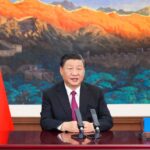Taliban co-founder Mullah Baradar will lead a new Afghan government set to be announced shortly, sources in the Islamist group said on Friday, as it battled rebel fighters in the Panjshir Valley and strived to ward off economic collapse.
Baradar, who heads the Taliban’s political office, will be joined by Mullah Mohammad Yaqoob, the son of late Taliban co-founder Mullah Omar, and Sher Mohammad Abbas Stanekzai, in senior positions in the government, three sources said.
“All the top leaders have arrived in Kabul, where preparations are in final stages to announce the new government,” one Taliban official told Reuters, on condition of anonymity.
Haibatullah Akhunzada, the Taliban’s surpreme religious leader, will focus on religious matters and governance within the framework of Islam, another Taliban source said.
The Taliban, which seized Kabul on Aug. 15 after sweeping across most of the country, have faced resistance in the Panjshir Valley, north of the capital, with reports of heavy fighting and casualties.
Several thousand fighters of regional militias and remnants of the government’s armed forces have massed in the rugged valley under the leadership of Ahmad Massoud, the son of former Mujahideen commander Ahmad Shah Massoud.
Efforts to negotiate a settlement appear to have broken down, with each side blaming the other for the failure.
HUMANITARIAN CATASTROPHE
The government’s legitimacy in the eyes of international donors and investors will be crucial for an economy grappling with drought and the ravages of a conflict that killed an estimated 240,000 Afghans.
Humanitarian groups have warned of impending catastrophe and the economy, reliant for years on many millions of dollars of foreign aid, is close to collapse.
Many Afghans were struggling to feed their families amid severe drought well before the Taliban took power and millions may now face starvation, aid agencies say.
“Since August 15, we have seen the crisis accelerate and magnify, with the imminent economic collapse that is coming this country’s way,” Mary-Ellen McGroarty, the director of the World Food Programme in Afghanistan, told Reuters from Kabul.
The administration of U.S. President Joe Biden has no plans to release billions in Afghan gold, investments and foreign currency reserves parked in the United States that it froze after the Taliban’s takeover.
In a positive development, a senior executive of Western Union Co (WU.N) said the firm was resuming money-transfer services to Afghanistan in line with a U.S. push to keep up humanitarian work.
RECOGNITION
The Taliban enforced a radical form of sharia, or Islamic law, when it ruled from 1996 to 2001.
But this time around, the movement has tried to present a more moderate face to the world, promising to protect human rights and refrain from reprisals against old enemies.
The United States, the European Union and others have cast doubt on such assurances, saying formal recognition of the new government, and the resultant flow of economic aid, was contingent on action.
The Taliban have promised safe passage out of the country for any foreigners or Afghans left behind by the huge airlift that ended when U.S. troops withdrew ahead of an Aug 31 deadline. But, with Kabul airport still closed, many were seeking to flee over land.
Thousands of Afghans, some without documents, others with pending U.S. visa applications or whose families have mixed immigration status, also wait in “transit hubs” in third countries.













